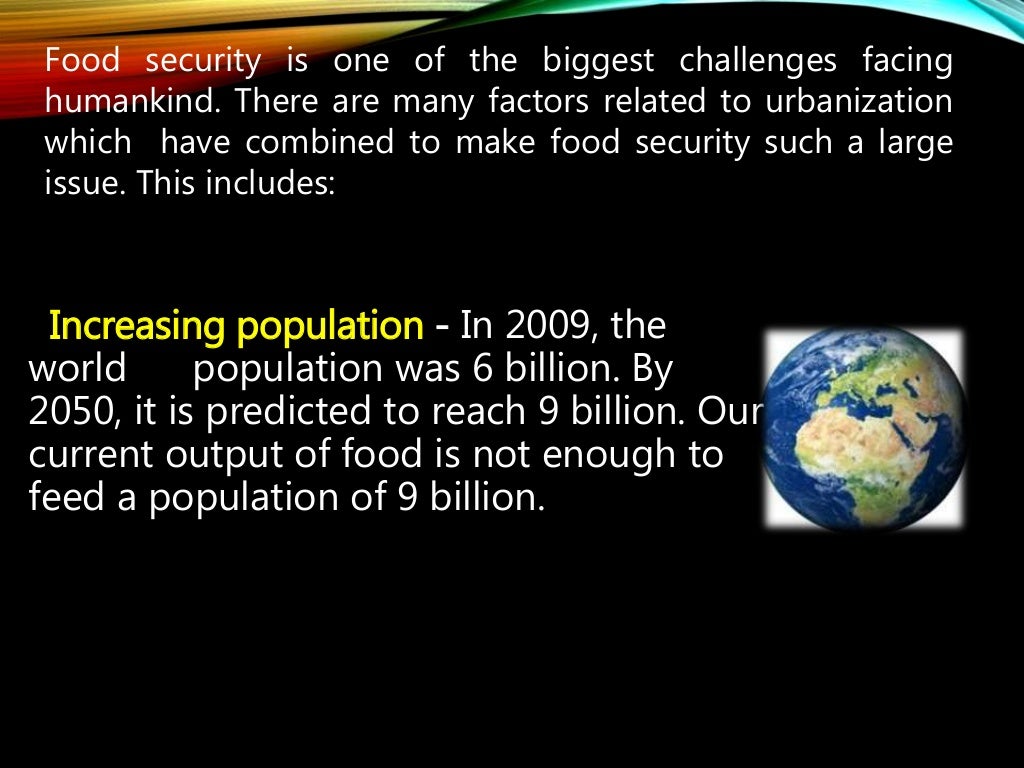Urbanization and its effect on food security Biology Diagrams Writing in Science, Seto calls on the research community to move beyond urbanization's direct effects on diet and to focus on its indirect effects on resource use and the environment, including the amount of energy required for food production, transport, packaging, and cold storage. "This link between urbanization and food systems has not been fully explored in a systematic, empirical way Global change scenarios such as climate change, natural disasters, geopolitical crises, and pandemics are drawing increasing attention to vulnerabilities in global food supply (Jansma and Wertheim-Heck, 2022).The rampant expanding urbanization and industrialization emphasize the "urban land teleconnection," which links urban consumption with its effects on cultivated land (not necessarily Figure 20: Long Description. The interconnected boxes of urbanization driving changes in agrifood systems affecting access to affordable healthy diets and other drivers of agrifood systems change alongside urbanization: income growth, employment, lifestyles, economic inequality, policies, and investments indicate rural-urban continuum, where agrifood systems of food supply chains and food

Dietary changes, such as increasing diversity and rising consumption of non-grain foods, processed products, and prepared foods, typically accompany urbanization. As urban markets expand, food supply chains and markets are also transformed—for example, the case of teff in Ethiopia (Minten et al., 2016). Impacts of urbanisation on food systems. In this section, we discuss the most important impacts of urbanisation on food systems which, in turn, affect rural livelihoods: the overall growth of urban food demand; purchasing power and related food preferences; increasingly complex food value chains; and direct and indirect land use changes. By shortening the food supply chain, urban agriculture reduces the reliance on pesticides and fertilizers, while also conserving water and mitigating land degradation. It also supports climate resilience by mitigating urban heat island effects and promoting the sustainable use of urban waste streams. The circular economy is emerging as a

urbanization to food systems to help ... Biology Diagrams
These studies place less emphasis on the internal organization of the food system within cities, on the effects of forms of urbanization or on city dwellers' behaviour. However, the non-sustainability of urban food systems is also a result of urban lifestyles, spatial configurations and consumption practices. The dependence of many very large concentrations of urban populations on long international supply chains for food, fuels and most intermediate and final goods makes them vulnerable to disasters in locations that supply these or buy their products, and also to rising fuel prices. Any discussion of the ways in which urbanization may affect

